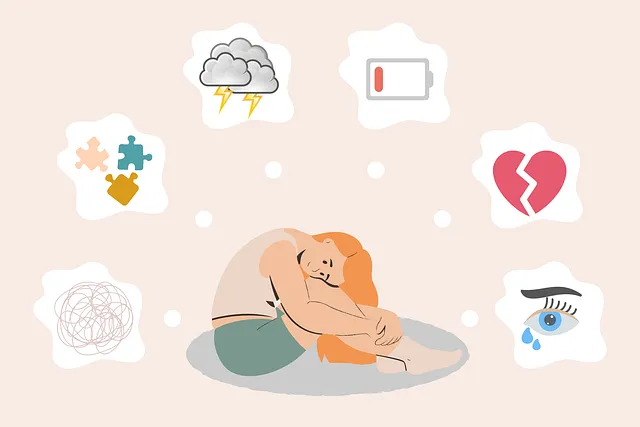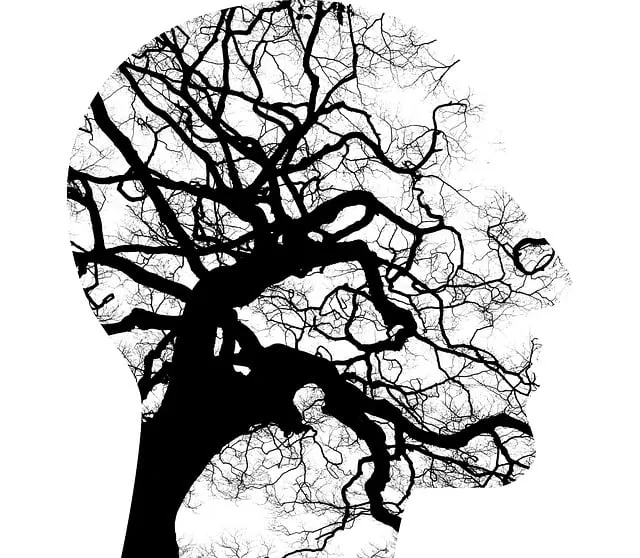Mental health professionals in Lafayette, especially those affiliated with Kaiser Permanente, prioritize risk assessment for acute crises using a structured approach that includes detailed client history and evidence-based tools. By integrating self-care practices into treatment plans, they empower individuals with long-term coping strategies. Organizations like Kaiser contribute to the mental health landscape by promoting stress reduction, destigmatizing mental illness, and encouraging early intervention. Professionals face emotional demands, including exposure to traumatic stories and ethical dilemmas, emphasizing the need for proactive risk management and cultural sensitivity training. Understanding how to access Kaiser's mental health services in Lafayette is crucial for effective crisis management and preventive care.
Mental health professionals are at a unique risk of experiencing secondary traumatic stress and burnout. This article guides you through the essential process of risk assessment, highlighting best practices inspired by leaders like Lafayette and Kaiser in accessing mental health services. By understanding potential risks, from client caseloads to self-care deficiencies, you’ll explore effective strategies for risk management and mitigation. Learn how to create a resilient practice while ensuring your well-being and that of your clients. Discover the path to sustainable mental health care through Lafayette’s and Kaiser’s models.
- Understanding Risk Assessment in Mental Health Practice
- The Role of Lafayette and Kaiser in Accessing Mental Health Services
- Identifying Potential Risks for Mental Health Professionals
- Strategies for Effective Risk Management and Mitigation
Understanding Risk Assessment in Mental Health Practice

Mental health professionals regularly encounter clients facing diverse challenges, from manageable stress to acute crises. Risk assessment is a crucial component of effective care, enabling practitioners to understand and mitigate potential risks associated with client situations. It involves systematically evaluating factors that could impact a client’s well-being, including psychological, social, and environmental aspects. By conducting thorough risk assessments, professionals can tailor interventions, provide appropriate support, and ensure the safety and security of both clients and themselves.
In Lafayette, accessing mental health services through Kaiser offers a structured framework for risk assessment, guided by Crisis Intervention techniques. This process involves gathering comprehensive client histories, identifying warning signs, and utilizing evidence-based tools to predict and manage potential risks. Additionally, promoting Self-Care Practices among clients can be a game-changer in preventive mental health management. Boosting confidence through various interventions not only empowers individuals but also equips them with strategies to navigate challenges, fostering better overall well-being.
The Role of Lafayette and Kaiser in Accessing Mental Health Services

Mental health professionals, like those affiliated with Lafayette or Kaiser, play a pivotal role in providing accessible and quality mental healthcare services. These institutions, known for their comprehensive approaches, offer a safe space for individuals seeking support. At Lafayette, for instance, professional counseling and therapy services are readily available, catering to diverse needs. Similarly, Kaiser Permanente, through its integrated healthcare system, facilitates seamless access to mental health resources.
Beyond direct service provision, organizations like Lafayette and Kaiser contribute to the broader mental health landscape by promoting stress reduction methods and empathy-building strategies. They also engage in public awareness campaigns development, aiming to destigmatize mental illness and encourage early intervention. These efforts collectively enhance the accessibility and effectiveness of mental health support systems.
Identifying Potential Risks for Mental Health Professionals

Mental health professionals often find themselves at a unique intersection of intense emotional demands and sensitive client issues. Identifying potential risks is a proactive step to ensure their well-being, especially considering the growing need for mental healthcare services like those offered by Kaiser in Lafayette.
Beyond the typical stress and burnout associated with high-pressure careers, these professionals may face challenges such as exposure to traumatic stories, managing intense emotions, and navigating complex ethical dilemmas. For instance, providing anxiety relief or mood management strategies to clients can be rewarding but also demanding, requiring a delicate balance between support and professional boundaries. Additionally, cultural sensitivity in mental healthcare practice is essential, as professionals must adapt to diverse backgrounds and beliefs, which may introduce unique risk factors and require specialized training.
Strategies for Effective Risk Management and Mitigation

Mental health professionals are constantly navigating complex situations that involve sensitive and vulnerable individuals. Effective risk management is therefore a cornerstone in ensuring both patient safety and professional well-being. Strategies for mitigating risks should be comprehensive, encompassing policies, training, and personal practices.
One key approach involves integrating mental wellness coaching programs and stress management techniques, such as mindfulness meditation. These tools empower professionals to recognize early warning signs of potential risks, improve coping mechanisms, and enhance overall resilience. By prioritizing self-care and adopting evidence-based strategies like mindfulness, professionals can better support their clients while maintaining optimal mental health—a crucial aspect in Lafayette, where access to mental health services through Kaiser or other providers is essential for individuals seeking care.
Mental health professionals, like those facilitated by Lafayette and Kaiser, play a crucial role in providing support and guidance. However, they also face unique risks. By understanding risk assessment methods, identifying potential dangers, and implementing effective strategies for management, these professionals can ensure a safer environment for themselves and their clients. Leveraging resources like Lafayette and Kaiser to access mental health services is a vital step towards mitigating these risks, fostering healthier practices, and enhancing patient care.




